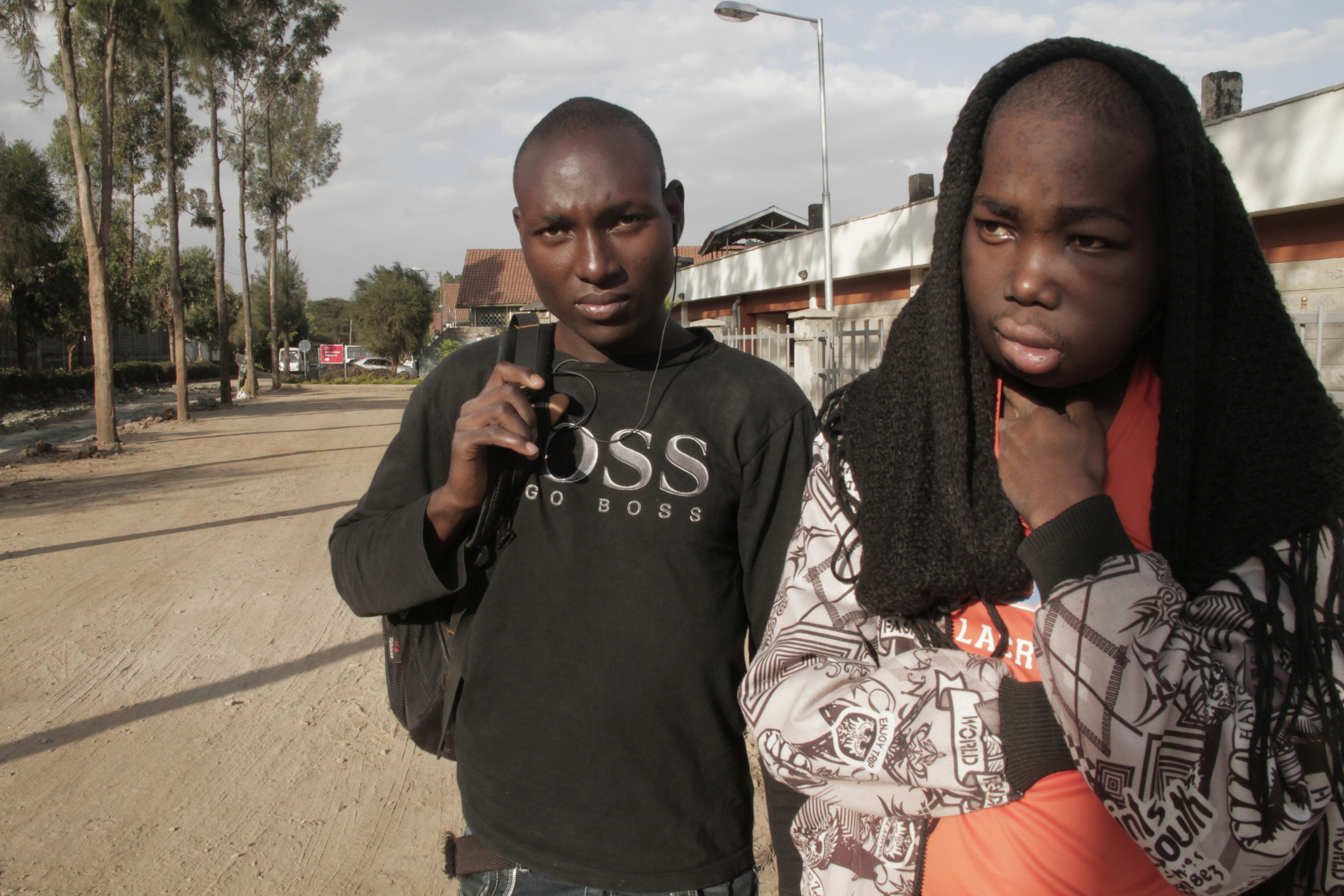Brian
by Emma Nzioka
“When I go back to my normal self, my dreams I’ll still pursue…I want to be a medical officer.” – Brian
Twenty-one year old Brian Mutachi is a patient at the Texas Cancer Centre in Nairobi, Kenya. On this day in August 2015, he is gently sprawled in a patient’s chair in the chemotherapy room, his face badly swollen and his body looking visibly weak, seeming to emanate physical pain. He has his left hand over his head and his right palm cupping his face. The swelling on his face is more pronounced on his left cheek, with a large, open wound along his jawline. He speaks with difficulty and has to take a breath before letting out any words.
“Niaje!”
He extended his hand in greeting. It was a weak handshake. His hand felt cold. Brian spoke with a slur, and his voice was hoarse. The light that streamed through some of the overhead windows fell softly on his face.
“My name is Brian Mutachi.”
Brian has oral cancer, centered in his cheek.
Signs of Brian’s cancer initially developed slowly, but then the cancer progressed rapidly. Brian had complained of a swollen tongue one morning in his second year at Meru University, where he was pursuing a Bachelor's degree in Science and Chemistry. He had developed a painful sore.
Brian’s older brother, Eugene Lumiti, was at the treatment centre with him. Brian and his brother were orphaned at an early age. Their parents died in a care accident in 1996, when Brian was two and Eugene was five. They first lived with their uncle in Kibera in Nairobi, and then moved to Kakamega to live with their grandmother.
Eugene explains what had recently happened to Brian.
“Brayo went to Kakamega [his hometown] for treatment and his tongue healed. However, after two or three months, he said that there was a pimple on his face, on his left cheek, and this pimple hurt him really bad. He decided to pop the pimple on his face but it hurt even worse, and it led to his cheek swelling up.”
Brian was taken to Kakamega General Hospital, but the doctors were unable to determine what was ailing him. They referred him to the Kenyatta National Hospital in Nairobi, a 17-hour bus ride away. There, a CT scan was ordered. Eugene was working as a security guard in Nairobi at the time but was not earning enough to afford the scan.
“I decided to return to Kakamega. We cut up a tree on our land; it was worth 14,000 shillings. This enabled Brian to have his scan done.”
Doctors in Kenyatta diagnosed Brian with cancer. By that time, his face was already badly swollen. His brother did not have enough money to begin the treatment he needed immediately. It was then that a doctor suggested that they go to the Texas Cancer Centre in Nairobi. The brothers were under the impression that the treatment there would be free of charge, but this was not the case.
"We thought it was best to take him to Texas, but we did not know what was going on. It turned out that a bill was just piling up after every treatment. When I tried to call the doctor, they would not pick up the phone, " Eugene said.
“We thought it was best that we take him to Texas but we did not know what was going on. It turned out that a bill was just pilling up after every treatment. When I tried to call the doctor, they would not pick up the phone. We had no choice to continue with the treatment.”
Eugene pushed on to ensure Brian received his treatment at the Texas Cancer Centre. It took some persuasion to make it to the sixth treatment, but he managed to have it done.
“If morphine was available in all district hospitals, I feel it would be a very good thing. If the government would take the initiative to bring morphine to say Kakamega Hospital, it would make it a lot easier for those who have cancer and cannot help themselves fare to at least get some help at the hospital and to also have enough money to buy the pain medication. I feel it would also increase the life of someone because, when you are not in pain, you can gather enough energy to eat and to continue with your life.”
Brian Mutachi has an outstanding hospital bill of Ksh 432,000. His brother says he has plans to organize for a fundraiser to help alleviate this burden. Further plans are also underway to help Brian gain free access to palliative care he desperately needs while the family raises funds for his surgery.
This story was reported in August of 2015; Brian died on November 3, 2015.















